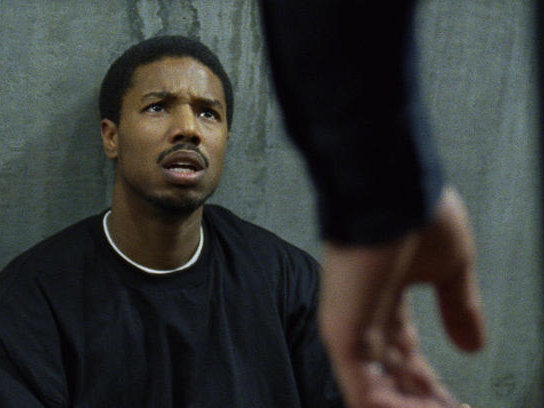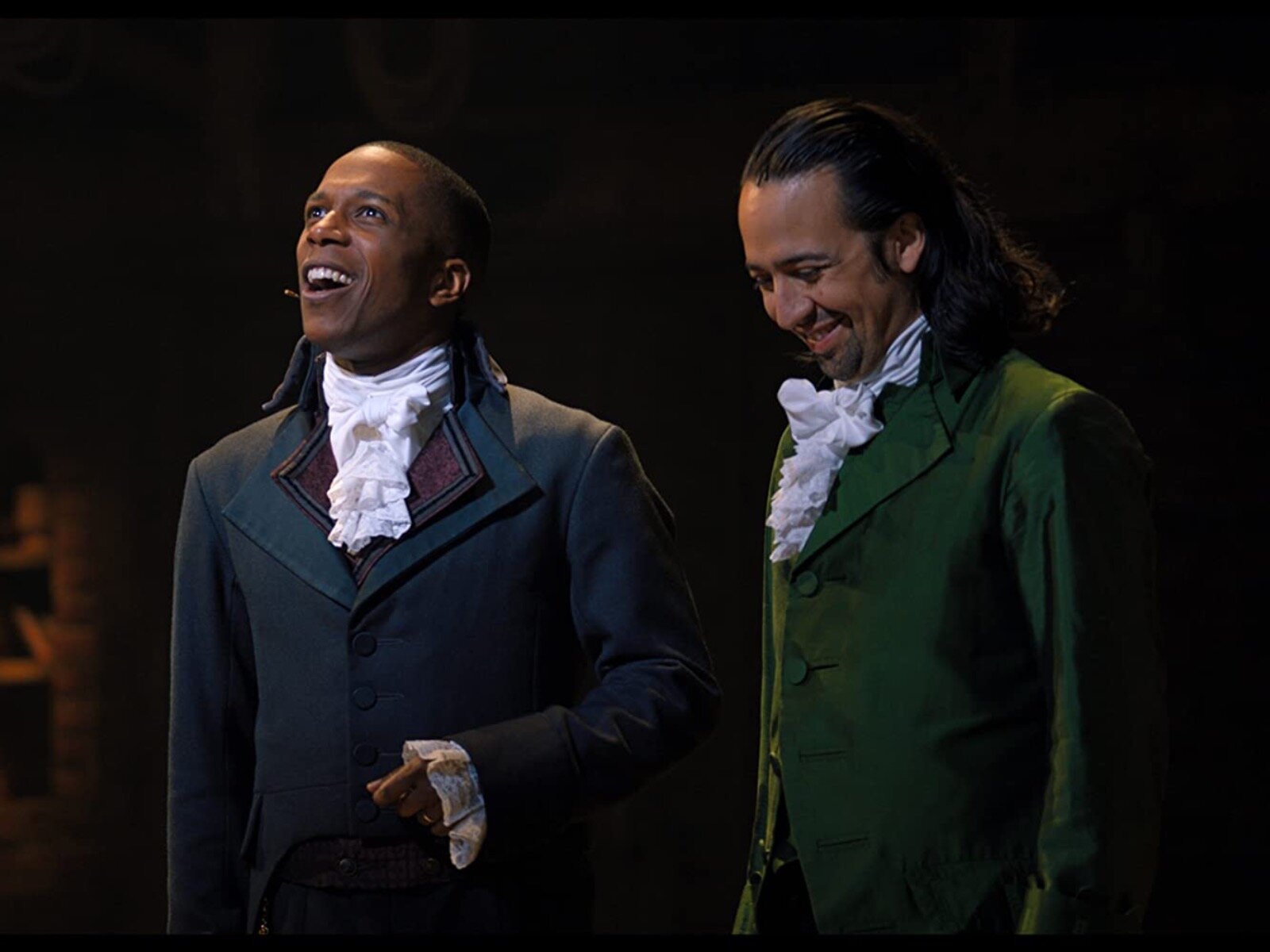It’s just too easy.
The line between an angry altercation and a person dead is just too easy to cross when a gun is put into the picture. And once that line is crossed, there is no going back. The trigger can’t be unpulled. The wounds won’t completely heal, if at all. With one decision, everything has changed for everyone involved. There’s so much unnatural power in a simple squeeze of a trigger, and the consequences are so steep.
But it’s just too easy to pull out the weapon, to use – or all too often misuse – its godlike ability to grant life and death, to kill a man and face the responsibility of that split-second decision for the rest of one’s life.
It’s this thought that struck me the most during "Fruitvale Station," the powerful, tragically true story of Oscar Grant, an unarmed man who was shot and killed by police officers while on a train ride home on New Year’s Day 2009.
There are only two shots fired in the entire film – technically the same shot, seen once in grainy cell phone footage from the real-life event and again in a reenactment – and each one seems so small and yet so powerful. Nothing dramatic, just a brief pop amidst the noise of the irritated and likely buzzed station crowd. But suddenly, everything is wrong, everyone knows it and no one knows what to do. It’s a small moment with such enormous, shattering results that could’ve been so easily avoided.
But that’s the problem with a gun. It doesn’t solve problems; it escalates them to a point of no return, so disturbingly fast and easily.
Writer-director Ryan Coogler’s feature film debut – which comes with glowing, award-winning stamps from both Sundance and Cannes – arrives hot on the heals of the controversial Zimmerman verdict and a year in which mass shootings in places once thought unfathomable forced America to look in the mirror when it comes to its obsession with guns. Its remarkable timing may strike a raw nerve, but that’s why the movie is so necessary.
The film focuses on Oscar (Michael B. Jordan of "Chronicle" and TV’s "Friday Night Lights") and the day leading up to his fateful New Year’s train ride. He spends most of the day trying to get a new start to his life, a hard task for a 22-year-old two-time ex-con with a loyal, steady girlfriend (Melonie Diaz) and a child to support.
Despite all of his efforts, though, Oscar is no saint. He clearly loves his family, his mother (Oscar winner Octavia Spencer) and his daughter, and he wants to do right by them. This also means lying about still having a job at a local grocery, which he lost for being late too much, and flirting with getting back into drug dealing in order to make up the money. He doesn’t, instead deciding to dump the weed in the ocean. A new start seems to be on the horizon. He even meets a nice fellow partygoer on the way home who offers him a business card. If only …
Coogler’s script piles a number of these moments to foreshadow and amp up the tragic irony of Oscar’s life and death, something the film doesn’t particularly need. The fact that his death was so irrational and unnecessary is sad enough. It doesn’t need screenwriter tricks (or, for that matter, casting Kevin Durand – an actor with a Michael Shannon-like face and intensity made for unbalanced, villainous characters – as one of the two cops).
When Coogler allows Oscar’s story to be real and natural – which is most of the time – he’s got one of the best, emotionally potent and heartbreaking movies of the year. His observant direction is devoid of almost all flash, but he’s captures natural moments.
There’s real sense of joy and community in the scenes like Oscar eating a birthday dinner with his family or an impromptu New Year’s Eve dance party on a stalled train. On the other end of the spectrum, the tragic stop at Fruitvale Station – caused by a fight between Oscar and a former prison inmate – is captured with horrifying authenticity, with the loud chaos sharply turning into quiet, inner chaos as soon as the shot is fired.
Part of Coogler’s success is also just by trusting his supremely talented young cast. Diaz (some might remember her as one of the students in "Hamlet 2") is very good as Oscar’s occasionally flustered but loyal girlfriend. The last 20 minutes or so become hers, and she doesn’t miss a beat. Watching her panicking, trying to find out what happened after getting separated from Oscar is some of the most heart-wrenching acting I’ve seen so far this year.
Spencer is very good as well as Oscar’s supportive mother. Even the previously mentioned Durand, though seemingly doomed to appear vaguely villainous, is a powerful part of the final act. His seemingly dazed and stunned reaction to the shooting (Chad Michael Murray – yes, the one from "One Tree Hill" – plays his partner) makes it feel all the more real and complex. Even with all of the yelling and anger – it’d be somewhat naïve to think race wasn’t a factor in the incident, a point Coogler hits just right – no one expected it to get to this point.
Then there’s Coogler’s star, Michael B. Jordan. His performance here is a slam dunk on par with the famous NBA hall of famer who shares his name. Whatever contrivances there are in the script, Jordan makes human and come alive on screen. He’s both the warm family man who wants to do right and the intimidating intensity of a desperate man on the edge.
When those two elements come together – such as his attempt to get his job back at the grocery store or a flashback to a prison visit from his mother that ends with him getting restrained by several guards – Jordan gives the audience a glimpse at the full character, flaws and all. In the hands of a lesser performance, Oscar could’ve come off as a martyr. In Jordan’s hands, he’s a real person.
The incredible timing of "Fruitvale Station" will earn the film labels like important, which it is. Right now, it will be seen as significant because of its implied politics and its role as a spark plug in the ongoing nationwide discussion on guns, race and the collision of the two. Years from now, when that conversation dies down – likely washed under by other, new controversies and news stories – it’ll be just as important as simply a tremendously powerful tribute to life and how important, fleeting and fragile it can be.
As much as it is a gigantic cliché to say that one has always had a passion for film, Matt Mueller has always had a passion for film. Whether it was bringing in the latest movie reviews for his first grade show-and-tell or writing film reviews for the St. Norbert College Times as a high school student, Matt is way too obsessed with movies for his own good.
When he's not writing about the latest blockbuster or talking much too glowingly about "Piranha 3D," Matt can probably be found watching literally any sport (minus cricket) or working at - get this - a local movie theater. Or watching a movie. Yeah, he's probably watching a movie.







